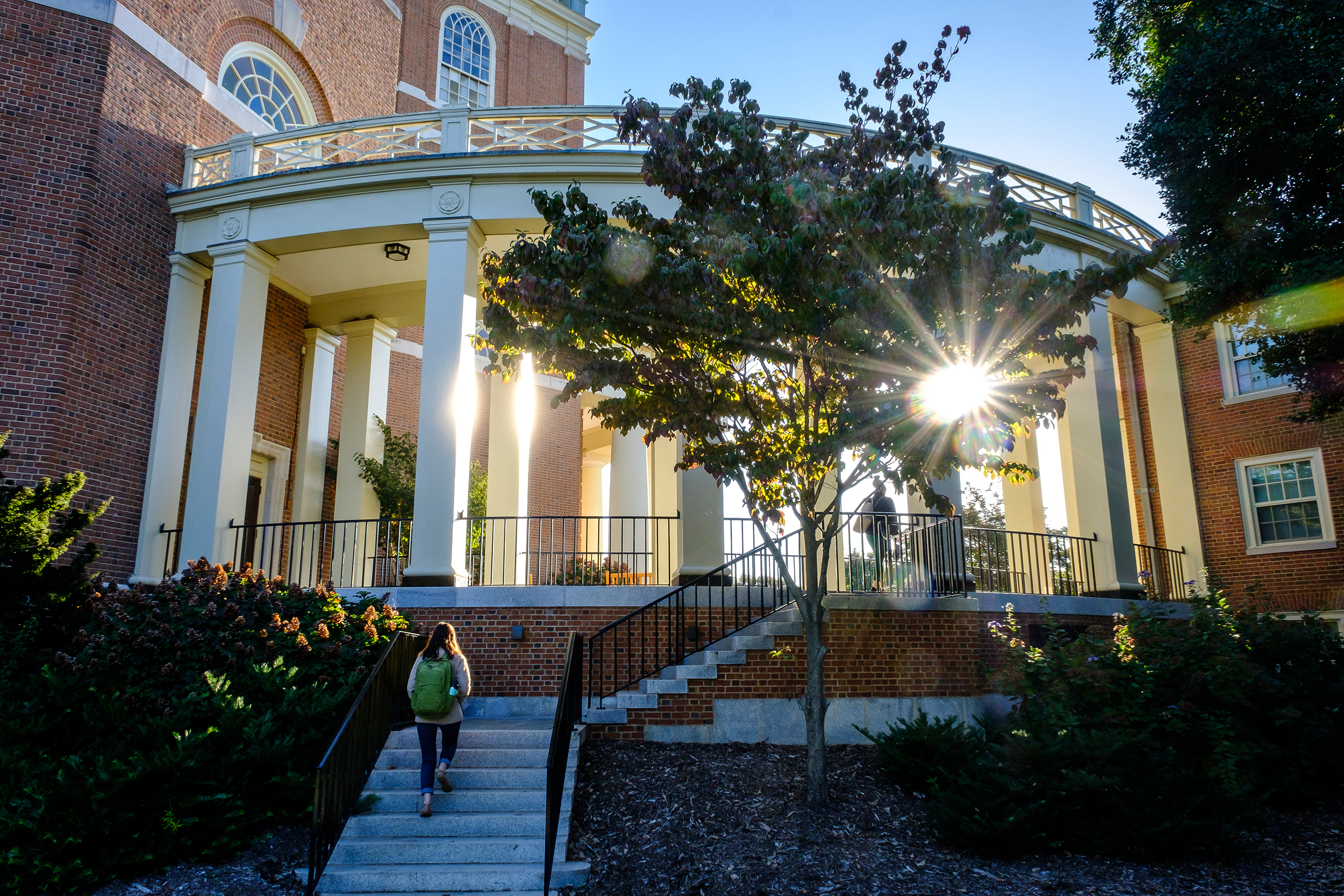Pro Humanitate: Students recognized for their commitment to volunteering and service
The high level of volunteerism by students has helped Wake Forest win national recognition for community service. Nearly 60 percent of the University’s students, including undergraduate, graduate and professional students, contributed nearly 100,000 hours of service last year. That was among the factors that helped Wake Forest earn a place on The President’s Higher Education Community Service Honor Roll for 2009.
The honor roll gives federal recognition to universities and colleges for their commitment to volunteering and community service. This is the fourth year that Wake Forest has achieved recognition on the Honor Roll, which was created in 2006.
“We believe that one important way we as a university community live out our motto of Pro Humanitate is through our students’ impressive community service and public engagement,” said Michele Gillespie, Associate Provost for Academic Initiatives and Kahle Family Professor of History.
The National Honor Roll is significant because it is compiled by the Corporation for National and Community Service, a federal office that promotes civic engagement across America, said Brighid Jensen, director of Campus Life.
The Honor Roll doesn’t single out any specific initiative for recognition. Instead, colleges are recognized for the scope of community service projects, percentage of student participation, and whether the college offers academic service-learning courses.
Wake Forest, through various programs and offices — including the Pro Humanitate Center, Volunteer Services Corps and the Community Law and Business Clinic — was credited with programs that provide tutors to at-risk students, legal aid for seniors and victims of domestic violence, and business guidance for entrepreneurs in low-income communities.
The creation of the Institute for Public Engagement, announced last September, is a centerpiece of the University’s commitment to community service, Jensen says. The institute’s mission includes training students for civic leadership, expanding volunteer opportunities on and off campus, and serving as a catalyst for innovative public-engagement programs.
“The launching of the Institute for Public Engagement will enable us to better support, generate and share the impressive service work our faculty, staff and students are performing through their courses, research, organizations and community partnerships.” Gillespie said.
Categories: Community Impact, Experiential Learning, Pro Humanitate, University Announcements
Media Contact
Wake Forest News
media@wfu.edu
336.758.5237



